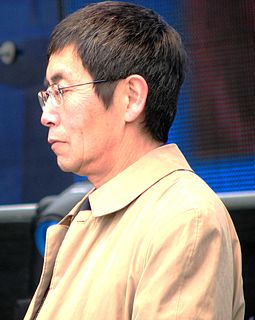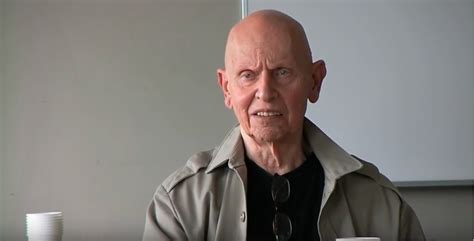A Quote by Mahmoud Darwish
I thought poetry could change everything, could change history and could humanize, and I think that the illusion is very necessary to push poets to be involved and to believe, but now I think that poetry changes only the poet.
Related Quotes
I tend to like the way poets form communities. Writing can be lonely after all. Modern life can be lonely. Poets do seem to be more social than fiction writers. This could be because of poetry's roots in the oral tradition - poetry is read aloud and even performed. I'm just speculating, of course. At any rate, because poets form these groups, they learn from one another. That is one of the best things about being a poet.
I didn't ever consider poetry the province exclusively of English and American literature and I discovered a great amount in reading Polish poetry and other Eastern European poetry and reading Russian poetry and reading Latin American and Spanish poetry and I've always found models in those other poetries of poets who could help me on my path.
There's a sameness about American poetry that I don't
think represents the whole people. It represents a poetry
of the moment, a poetry of evasion, and I have problems
with this. I believe poetry has always been political, long
before poets had to deal with the page and white
space . . . it's natural.
In most of the world, poetry has such a different reputation than it does in Western culture. Poetry is a popular genre in Afghanistan. If you turned on the radio, there would be a poetry program that would be as popular as The Real Housewives. People aren't listening to poetry as if they're taking their vitamins. Instead, it's a popular vessel you can fill with anything. You could fill it with sass. You could fill it with rage. You could fill it with political statements.
I wrote poetry for seven or eight years, maybe longer, before I could say I was a poet. If people asked, I'd say I wrote poetry; I wouldn't go further. I was in my mid- to late-thirties before I felt that I was a poet, which I think meant that I had begun to embody my poems in some way. I wasn't just a writer of them. Hard to say what, as a poet, my place in the world is. Some place probably between recognition and neglect.
Poetry is the most informative of all of the arts because everything comes down to poetry. No matter what it is we are describing, ultimately we use either a metaphor; or we say "that's poetry in motion." You drink a glass of wine and say, "that's poetry in a bottle." Everything is poetry, so I think we come down to emotional information. And that's what poetry conveys.
People thought it was asinine for me to change my swing after I won the Masters by 12 shots. ... Why would you want to change that? Well, I thought I could become better. If I play my best, I'm pretty tough to beat. I'd like to play my best more frequently, and that's the whole idea. That's why you make changes. I thought I could become more consistent.







































